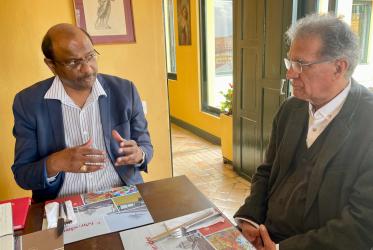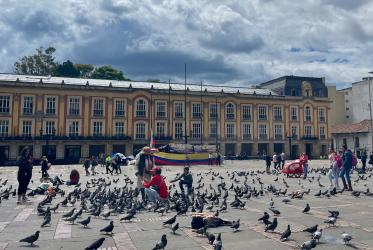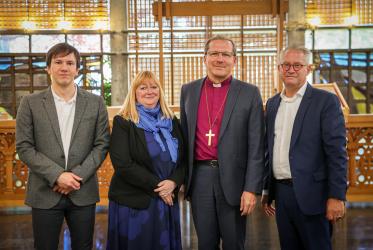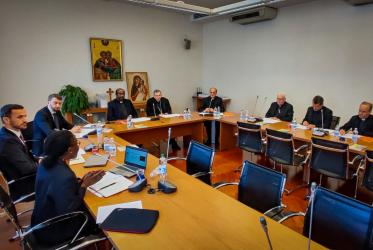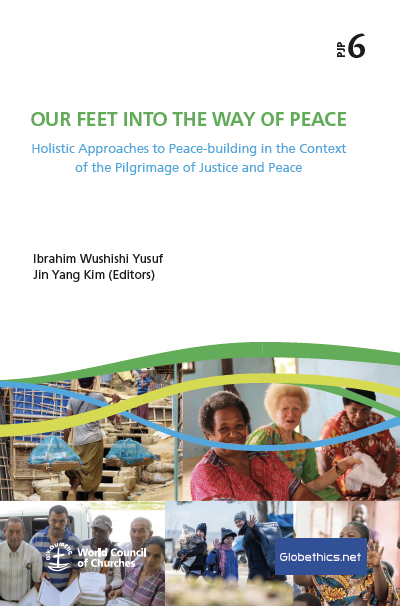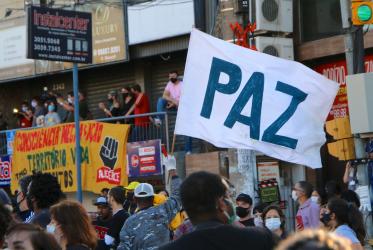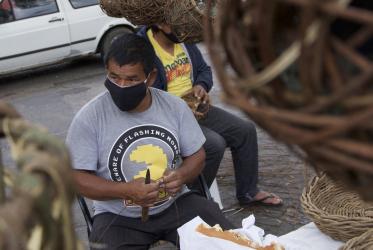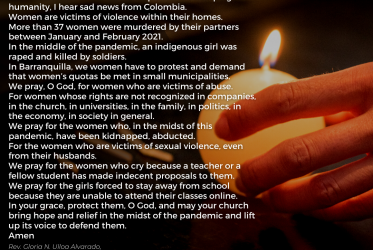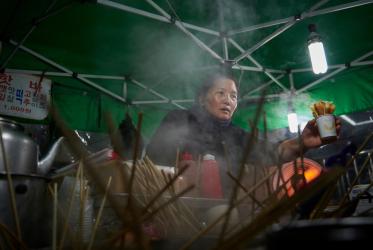Displaying 1 - 20 of 70
11 April 2024
WCC backs extension of ceasefire in Colombia
18 January 2024
WCC hosts visitors from Finland, Germany, and Sweden
29 September 2023
Our Feet into the Way of Peace: PJP Series 6
Holistic Approaches to Peace-building in the Context of the Pilgrimage of Justice and Peace
19 August 2022
A visionary missionary heads home
25 March 2020

